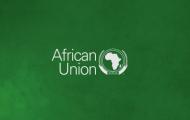Department Resources
Supply Chain Management Division Operations Support Services Directorate
Addis Ababa, Ethiopia
The close of the last decade saw a heightened concern by the global community around the triple planetary crisis of biodiversity loss, cl
The African Union Commission (AUC) envisions “an integrated continent that is politically united based on the ideals of Pan Africanism an
Highlights of the cooperation with the GIZ-project “Support to the African Union on Migration and Displacement”
Violent extremism is a global issue.
Agenda 2063 is Africa’s development blueprint to achieve inclusive and sustainable socio-economic development over a 50-year period.
Supply Chain Management Division Operations Support Services Directorate
Addis Ababa, Ethiopia
In a world where every click, every share, and every tweet can broadcast one’s thoughts to a global audience, the digital realm has becom





